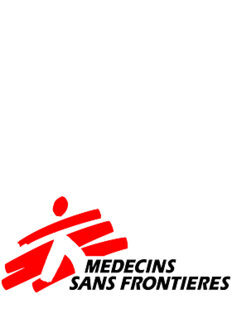Doctors Without Borders
History
 Médecins Sans Frontières (MSF) is an international humanitarian aid organisation that provides emergency medical assistance to populations in danger in nearly 70 countries. In countries where health structures are insufficient or even non-existent, MSF collaborates with authorities such as the Ministry of Health to provide assistance. MSF works in rehabilitation of hospitals and dispensaries, vaccination programmes and water and sanitation projects. MSF also works in remote health care centres, slum areas and provides training of local personnel. All this is done with the objective of rebuilding health structures to acceptable levels.
Médecins Sans Frontières (MSF) is an international humanitarian aid organisation that provides emergency medical assistance to populations in danger in nearly 70 countries. In countries where health structures are insufficient or even non-existent, MSF collaborates with authorities such as the Ministry of Health to provide assistance. MSF works in rehabilitation of hospitals and dispensaries, vaccination programmes and water and sanitation projects. MSF also works in remote health care centres, slum areas and provides training of local personnel. All this is done with the objective of rebuilding health structures to acceptable levels.
Raising Awareness
In carrying out humanitarian assistance, MSF seeks also to raise awareness of crisis situations; MSF acts as a witness and will speak out, either in private or in public about the plight of populations in danger for whom MSF works. In doing so, MSF sets out to alleviate human suffering, to protect life and health and to restore and ensure respect for the human beings and their fundamental human rights.
Only a small percentage of the populations that find themselves in a situation of danger gain the attention of the media. MSF teams travel to places that many people have never heard of, to assist those who have fallen victim to natural or man-made disasters. MSF volunteers have a story to tell when they return from their missions, and they use their experiences to speak of what they have seen. For MSF, raising awareness for these populations and the situations they are in is an important task. Whenever possible, MSF volunteers give interviews and make presentations. MSF offices worldwide facilitate the organisation of gatherings, for individuals and groups who want to speak in their home communities. MSF also mounts exhibitions and, from time to time, releases publications, with the aim of raising awareness.
It is part of MSF’s work to address any violations of basic human rights encountered by field teams, violations perpetrated or sustained by political actors. It does so by confronting the responsible actors themselves, by putting pressure on them through mobilisation of the international community and by issuing information publicly. In order to prevent compromise or manipulation of MSF’s relief activities, MSF maintains neutrality and independence from individual governments. The organisation also tries to ensure that the majority of funds raised for its work comes directly from contributions from the general public. In this way, MSF guarantees equal access to its humanitarian assistance.
MSF has been setting up emergency medical aid missions around the world since 1971.
* This basic description of Médecins Sans Frontières is presented on its website under the rubric: “About MSF.” It is used here with the consent of the organization. The link is https://www.msf.org/who-we-are.
This text was written at the time of the award and later published in the book series Les Prix Nobel/Nobel Lectures. To cite this document, always state the source as shown above.
Nobel Prizes and laureates
Six prizes were awarded for achievements that have conferred the greatest benefit to humankind. The 12 laureates' work and discoveries range from proteins' structures and machine learning to fighting for a world free of nuclear weapons.
See them all presented here.
